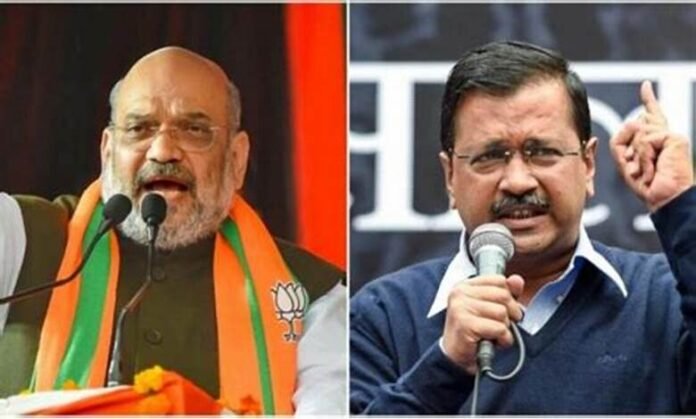The Supreme Court’s granting of interim bail to Delhi Chief Minister Arvind Kejriwal has been characterized by Union Home Minister Amit Shah as “not a routine judgment.” This commentary underscores the unusual and significant nature of the court’s ruling in a high-stakes legal and political battle.
The case in question stems from allegations against Arvind Kejriwal involving defamation and incitement related to political statements made during his tenure. These charges are part of a broader series of legal challenges faced by Kejriwal, who has been a prominent and often controversial figure in Indian politics. Known for his anti-corruption crusades and confrontational style, Kejriwal’s actions have frequently put him at odds with various political opponents and institutions.
On May 15, 2024, the Supreme Court of India granted interim bail to Kejriwal, temporarily halting the legal proceedings against him and providing a reprieve from immediate arrest. The court’s decision was based on several factors, including the need to uphold the principle of free speech in political discourse and the potential implications of the case on democratic processes.
In its ruling, the Supreme Court highlighted the importance of protecting political speech, especially in the context of election campaigns and public debates. The judges emphasized that while defamatory statements should not be condoned, the legal thresholds for such accusations need to be carefully scrutinized to avoid undue suppression of political expression.
Union Home Minister Amit Shah, a key figure in the Bharatiya Janata Party (BJP), responded swiftly to the Supreme Court’s decision. His statement, describing the ruling as “not a routine judgment,” reflects the broader political implications of the court’s intervention. Shah’s comment suggests that the ruling has far-reaching consequences beyond the immediate legal relief for Kejriwal.
Shah’s reaction can be seen in the context of the ongoing rivalry between the BJP and Kejriwal’s Aam Aadmi Party (AAP). The AAP, which emerged from the anti-corruption movement led by Kejriwal, has positioned itself as a major political force in Delhi and other regions. The BJP, as the dominant national party, views the AAP’s rise and Kejriwal’s populist rhetoric as significant challenges to its political hegemony.
The Supreme Court’s decision to grant interim bail to Kejriwal is likely to embolden his supporters and enhance his stature as a political leader who can withstand legal and political pressures. For the AAP, this ruling is a vindication of its claims that the charges against Kejriwal are politically motivated. It also reinforces the party’s narrative of being a victim of political vendettas orchestrated by its opponents.
For the BJP, the court’s ruling presents a complex scenario. On one hand, it underscores the independence of the judiciary and the robustness of India’s democratic institutions. On the other hand, it complicates the BJP’s strategy to counter Kejriwal’s influence. Amit Shah’s measured response indicates an awareness of these nuances, recognizing the need to navigate the situation carefully.
The Supreme Court’s emphasis on protecting political speech highlights a fundamental aspect of democratic governance. In a vibrant democracy like India, the freedom to critique and challenge political figures is essential. The ruling serves as a reminder that legal mechanisms should not be misused to stifle dissent or suppress political opponents.
Moreover, the decision underscores the judiciary’s role in balancing legal accountability with democratic freedoms. By granting interim bail, the Supreme Court has set a precedent that could influence future cases involving political speech and defamation.
The Supreme Court’s interim bail to Arvind Kejriwal marks a significant moment in Indian politics and jurisprudence. Amit Shah’s characterization of the judgment as “not a routine judgment” reflects the broader implications of the ruling. As India continues to navigate the complex interplay between law and politics, this decision reaffirms the importance of judicial independence and the protection of democratic principles.

